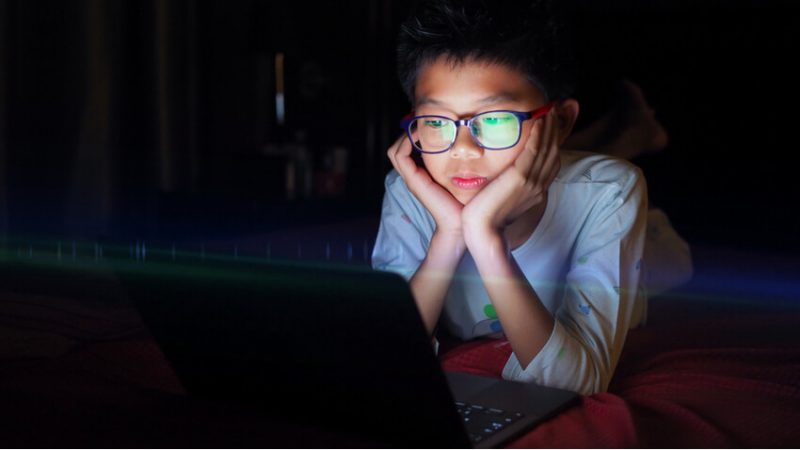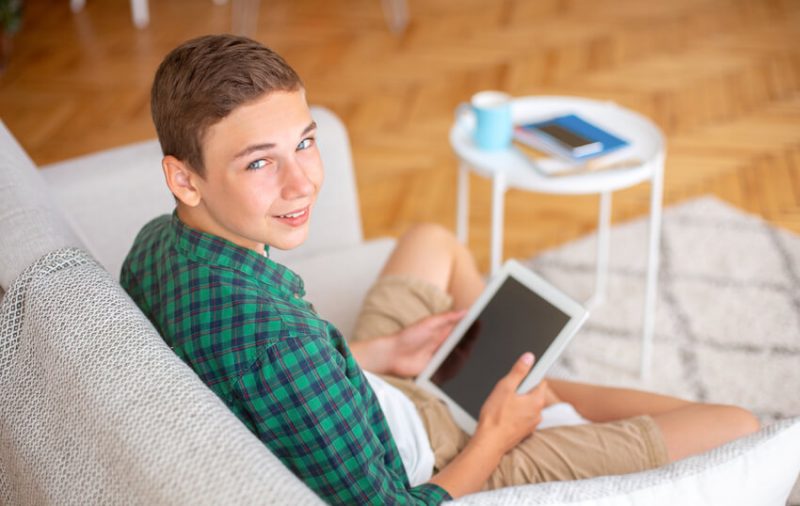How Can Online Learning Affect Your Child’s Eyes?
Over the past year, online learning has become the new normal for kids and their families. With Covid restrictions in place, children are spending more time on digital devices to watch lessons and complete homework. Unfortunately, this can negatively affect their vision. If your kids have been spending a lot of time doing online learning in Ontario, here’s how to protect their eyes from the effects of digital strain.
Eye Problems Caused By Prolonged Screen Time
Reading a screen is harder on your child’s eyes than reading from a book. Screens constantly flicker faster than we consciously notice, which creates more work for our eyes and confuses the brain. We start blinking less, which can lead to increased dryness and tiredness of the eyes. The high screen contrast, unlike with text books can lead to digital eye strain.
All that screen time also increases the risk of developing myopia, or shortsightedness. Excessive time in front of a screen every day means the eyes get used to only focusing on near vision tasks. The result is a detrimental effect on vision as the muscles in the eye responsible for focusing on distant objects become weak.

Blue light or HEV light can also play a role in digital eye strain. Digital screens emit blue light that can affect your child’s eyes and their body clock. The blue light tricks the brain into thinking it’s daytime by disrupting circadian rhythm, leading to sleep issues like insomnia.
How to Keep Your Kids’ Vision Healthy During Online Learning
It’s important to check your children’s eyes and vision regularly, even during the pandemic. We’re open for eyecare services and children’s eye exams with plenty of measures in place to keep staff and customers safe. Here are some of the signs that could indicate your child is having trouble with their vision:
- reluctance to read or do schoolwork
- squinting or tilting their head
- sitting very close to the screen
- rubbing their eyes
- headaches
Spending time outdoors is one of the best ways to slow the progression of myopia, so encourage your child to take regular breaks to play outside. When they’re doing homework or other activities that involve looking at a screen, teach them the 20-20-20 rule. Every 20 minutes, take a 20 second screen break and focus on an object 20 feet away. Setting a timer can help with this.

Blue blocker glasses are also an option for kids who spend a lot of time in front of a screen. These specially treated lenses block out harmful blue light. You can also use a blue light filter on their device, and try to limit screen time. A great way to do this is to plan off-screen fun for the whole family so they don’t feel like they’re missing out and can follow your example.
Call Us for Advice
For eyecare advice or to book a children’s eye exam, contact us at any of our locations – including our new office in Picton.

